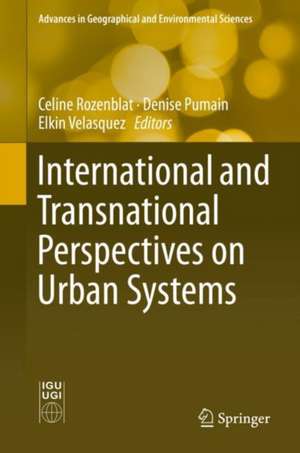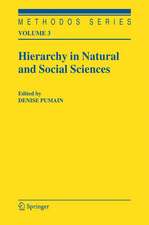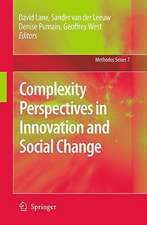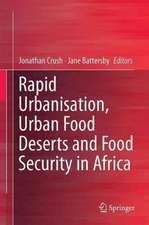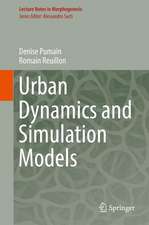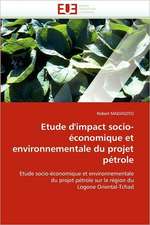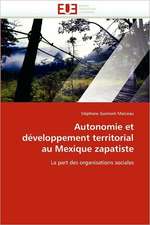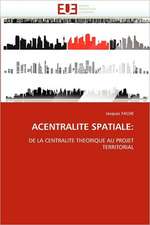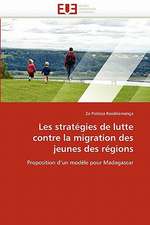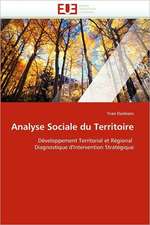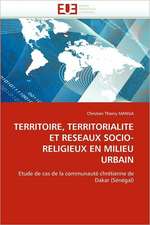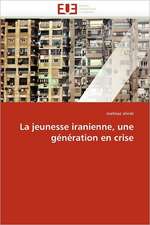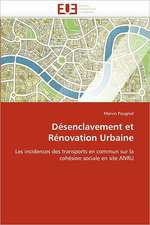International and Transnational Perspectives on Urban Systems: Advances in Geographical and Environmental Sciences
Editat de Celine Rozenblat, Denise Pumain, Elkin Velasquezen Limba Engleză Hardback – 25 mai 2018
| Toate formatele și edițiile | Preț | Express |
|---|---|---|
| Paperback (1) | 843.07 lei 38-45 zile | |
| Springer Nature Singapore – 3 ian 2019 | 843.07 lei 38-45 zile | |
| Hardback (1) | 1017.44 lei 3-5 săpt. | |
| Springer Nature Singapore – 25 mai 2018 | 1017.44 lei 3-5 săpt. |
Din seria Advances in Geographical and Environmental Sciences
- 18%
 Preț: 968.34 lei
Preț: 968.34 lei - 18%
 Preț: 944.99 lei
Preț: 944.99 lei - 18%
 Preț: 1220.45 lei
Preț: 1220.45 lei - 18%
 Preț: 1020.60 lei
Preț: 1020.60 lei - 15%
 Preț: 640.06 lei
Preț: 640.06 lei - 18%
 Preț: 1117.82 lei
Preț: 1117.82 lei - 18%
 Preț: 1021.55 lei
Preț: 1021.55 lei - 18%
 Preț: 1012.84 lei
Preț: 1012.84 lei - 17%
 Preț: 524.29 lei
Preț: 524.29 lei - 18%
 Preț: 731.10 lei
Preț: 731.10 lei - 18%
 Preț: 948.92 lei
Preț: 948.92 lei - 18%
 Preț: 1011.27 lei
Preț: 1011.27 lei - 18%
 Preț: 956.03 lei
Preț: 956.03 lei - 18%
 Preț: 945.79 lei
Preț: 945.79 lei - 18%
 Preț: 950.52 lei
Preț: 950.52 lei - 18%
 Preț: 959.98 lei
Preț: 959.98 lei - 18%
 Preț: 735.07 lei
Preț: 735.07 lei - 18%
 Preț: 733.03 lei
Preț: 733.03 lei - 18%
 Preț: 891.96 lei
Preț: 891.96 lei - 24%
 Preț: 641.28 lei
Preț: 641.28 lei - 18%
 Preț: 894.46 lei
Preț: 894.46 lei - 18%
 Preț: 1113.89 lei
Preț: 1113.89 lei - 18%
 Preț: 1102.03 lei
Preț: 1102.03 lei - 18%
 Preț: 959.98 lei
Preț: 959.98 lei - 18%
 Preț: 971.01 lei
Preț: 971.01 lei - 18%
 Preț: 790.28 lei
Preț: 790.28 lei - 15%
 Preț: 694.87 lei
Preț: 694.87 lei - 18%
 Preț: 893.71 lei
Preț: 893.71 lei - 18%
 Preț: 961.55 lei
Preț: 961.55 lei - 18%
 Preț: 893.71 lei
Preț: 893.71 lei - 18%
 Preț: 1121.76 lei
Preț: 1121.76 lei - 18%
 Preț: 954.45 lei
Preț: 954.45 lei - 18%
 Preț: 956.81 lei
Preț: 956.81 lei - 18%
 Preț: 780.82 lei
Preț: 780.82 lei - 18%
 Preț: 791.88 lei
Preț: 791.88 lei - 18%
 Preț: 894.46 lei
Preț: 894.46 lei - 18%
 Preț: 948.92 lei
Preț: 948.92 lei - 18%
 Preț: 791.88 lei
Preț: 791.88 lei - 15%
 Preț: 642.51 lei
Preț: 642.51 lei - 18%
 Preț: 780.37 lei
Preț: 780.37 lei -
 Preț: 401.50 lei
Preț: 401.50 lei - 15%
 Preț: 647.27 lei
Preț: 647.27 lei - 24%
 Preț: 821.40 lei
Preț: 821.40 lei - 18%
 Preț: 1232.41 lei
Preț: 1232.41 lei - 24%
 Preț: 683.50 lei
Preț: 683.50 lei
Preț: 1017.44 lei
Preț vechi: 1240.77 lei
-18% Nou
Puncte Express: 1526
Preț estimativ în valută:
194.68€ • 203.27$ • 161.13£
194.68€ • 203.27$ • 161.13£
Carte disponibilă
Livrare economică 14-28 martie
Preluare comenzi: 021 569.72.76
Specificații
ISBN-13: 9789811077982
ISBN-10: 9811077983
Pagini: 290
Ilustrații: XX, 393 p. 105 illus., 91 illus. in color.
Dimensiuni: 155 x 235 mm
Greutate: 0.95 kg
Ediția:1st ed. 2018
Editura: Springer Nature Singapore
Colecția Springer
Seria Advances in Geographical and Environmental Sciences
Locul publicării:Singapore, Singapore
ISBN-10: 9811077983
Pagini: 290
Ilustrații: XX, 393 p. 105 illus., 91 illus. in color.
Dimensiuni: 155 x 235 mm
Greutate: 0.95 kg
Ediția:1st ed. 2018
Editura: Springer Nature Singapore
Colecția Springer
Seria Advances in Geographical and Environmental Sciences
Locul publicării:Singapore, Singapore
Cuprins
An Evolutionary theory of Urban Systems.- Urban Systems Between National and Global: Recent Reconfiguration Through Transnational Networks.- Preliminary Typology of Cities and Systems of Cities.- The United States Urban System: From Colonial Settlements to Global Urban Centers, an Original Trajectory.- The Canadian Urban System: Urban Canada Goes Global.- Metropolization and polycentrism in the European Urban system.- Changes in the Japanese Urban System Since the 1950s: Urbanization, Demography, and the Management Function.- The South American Urban System: Primacy, Urban Concentration and Emerging Morphologies.- The Brazilian Urban System: Specialization and Regional Development.- The Chinese Urban System: Between Multi-level Political Evolution and Economic Transition.- Diffuse Urbanization and Mega Urban Regions in India: Between Reluctant and Restrictive Urbanism?.- The Russian Urban System: Evolution Engaged with Transition.- The South African Urban System: Coming to Terms with the Legacy of Social Control and Exclusion?.- Urbanization in Africa: Trends, Regional Specificities and Challenges.- The Sustainability of Urbanization in Africa’s Great Lakes Region: Trends and Policies Options.- Extended Metropolitan Development in Southeast Asia: From Primate Cities to Rerritorial Urban Diffusion.
Notă biografică
Céline Rozenblat is professor of urban geography at the University of Lausanne, Switzerland, and chair of the Urban Commission of the International Geographical Union (IGU). She develops studies of cities’ systems on a world scale, multinational firms’ networks, inter-urban dynamics, comparative urban data, mapping and visualization of networks in geography, and spatial analysis. Her research is mainly directed at the relations between local evolutions and networks dynamics into city systems. In a comparative perspective, she has built many databases on large European city samples and on world networks. In particular, since 1990 she had handled databases on localized multinational firms networks, on cities’ properties, and their evolution at the European and global levels in a multi-dimensional and long-term approach. Diachronic and dynamic studies supply materials to develop spatial and dynamic models and visualizations. For several years she has dealt with the relation betweennetworks’ developments and multi-level urban processes. She has participated in European projects such as ESPON FOCI 2008–2011, FP7 FET Insite (2011–2013) and Multiplex (2012–2016). She also participates in the EuropeAid project with China MEDIUM (2015–2019) on medium-size cities in China and recently has begun a new project, LOGIICCS (FNS 2015–2018), on the modelling of Indian and Chinese cities’ integration into global networks of multinational firms and innovation.Denise Pumain is emeritus professor at the University Paris I Panthéon-Sorbonne, and director of Cybergeo, European Journal of Geography. She was chair of the Commission on Urban Development and Urban Life of the International Geographical Union (1992–2000) and director of the European Research Group “Spatial Simulations for Social Sciences” at CNRS. She specialized in urban modeling and theoretical geography. Her main scientific contribution regards building an evolutionary theory of urban systems and transferring concepts and models from self-organizing complex systems towards social sciences.
She has received several academic awards (e.g., International Prize for Geography Vautrin Lud 2010; Corresponding member of the Austrian Academy of Science; Corresponding Fellow of the British Academy; an honorary doctorate in Lausanne and Liège Universities) and is holder of an ERC Advanced Grant (2010–2016). In her ERC-funded research she is looking at city system dynamics in the world by analyzing and modeling the geographical diversity of cities and systems of cities.
Dr. Elkin Velásquez Monsalve is the director of the Regional Office for the Caribbean and Latin America (ROLAC), UN-Habitat, in Rio de Janeiro. He is co-leading a coalition of regional partners towards enabling the implementation of the New Urban Agenda in LAC, particularly promoting a new Ecosystem of Funds for Sustainable Urban Development. Before this appointment in 2013, he served as leader of the Regional and Metropolitan Planning Unit in the Urban Planning and Design Branch at UN-Habitat HQ in Nairobi. He is a native of Colombia. Having studied public administration at the ENA (French National School of Public Administration), he obtained his Ph.D. in geography, specializing in territorial policy and planning, at the University of Grenoble (France). He also did graduate work in engineering at the School of Mines, National University of Colombia in Medellín.
Since 2009 he has led important global programs: He was UN-Habitat senior manager in the Nairobi HQ. In addition to work with the Regional and Metropolitan Planning Unit, he was chief of the Urban Governance Section from 2010 to 2011, and he was coordinator of the Safer Cities Program from 2009 to 2011. He also was responsible for the Gender Unit and established the flagship Initiative on National Urban Policies. His vast experience includes working in Argentina, Bolivia, Canada, Chile, Colombia, Ecuador, El Salvador, France, West Indies, Mexico, Nicaragua, Peru, and Venezuela. He also extensively backstopped and advised on projects in Africa and Asia on the New Urban Agenda, particularly on metropolitan planning and a new generation of national urban policies.
She has received several academic awards (e.g., International Prize for Geography Vautrin Lud 2010; Corresponding member of the Austrian Academy of Science; Corresponding Fellow of the British Academy; an honorary doctorate in Lausanne and Liège Universities) and is holder of an ERC Advanced Grant (2010–2016). In her ERC-funded research she is looking at city system dynamics in the world by analyzing and modeling the geographical diversity of cities and systems of cities.
Dr. Elkin Velásquez Monsalve is the director of the Regional Office for the Caribbean and Latin America (ROLAC), UN-Habitat, in Rio de Janeiro. He is co-leading a coalition of regional partners towards enabling the implementation of the New Urban Agenda in LAC, particularly promoting a new Ecosystem of Funds for Sustainable Urban Development. Before this appointment in 2013, he served as leader of the Regional and Metropolitan Planning Unit in the Urban Planning and Design Branch at UN-Habitat HQ in Nairobi. He is a native of Colombia. Having studied public administration at the ENA (French National School of Public Administration), he obtained his Ph.D. in geography, specializing in territorial policy and planning, at the University of Grenoble (France). He also did graduate work in engineering at the School of Mines, National University of Colombia in Medellín.
Since 2009 he has led important global programs: He was UN-Habitat senior manager in the Nairobi HQ. In addition to work with the Regional and Metropolitan Planning Unit, he was chief of the Urban Governance Section from 2010 to 2011, and he was coordinator of the Safer Cities Program from 2009 to 2011. He also was responsible for the Gender Unit and established the flagship Initiative on National Urban Policies. His vast experience includes working in Argentina, Bolivia, Canada, Chile, Colombia, Ecuador, El Salvador, France, West Indies, Mexico, Nicaragua, Peru, and Venezuela. He also extensively backstopped and advised on projects in Africa and Asia on the New Urban Agenda, particularly on metropolitan planning and a new generation of national urban policies.
Textul de pe ultima copertă
This book reviews the recent evolutions of cities in the world according to entirely revised theoretical fundamentals of urban systems. It relies on a vision of cities sharing common dynamic features as co-evolving entities in complex systems. Systems of cities that are interdependent in their evolutions are characterized in the context of that dynamics. They are identified on various geographical scales—worldwide, regional, or national. Each system exhibits peculiarities that are related to its demographic, economic, and geopolitical history, and that are underlined by the systematic comparison of continental and regional urban systems, following a common template throughout the book. Multi-scale urban processes, whether local (one city), or within national systems (systems of cities), or linked to the expansion of transnational networks (towards global urban systems) throughout the world over the period 1950–2010 are deeply analyzed in 16 chapters. This global overview challenges urban governance for designing policies facing globalization and the subsequent ecological transition. The answers, which emerge from the diversity of situations in the world, add some reflections on and recommendations to the “urban system framework” proposed in the Habitat III agenda.
Caracteristici
Presents a new urban system theory Is based on comparative empirical studies of urban systems linked to the urban system theory Covers urban systems for diverse parts of the world Shows cross-typologies of the world urban systems Provides multi-scalar governance diagnostics and recommendations
